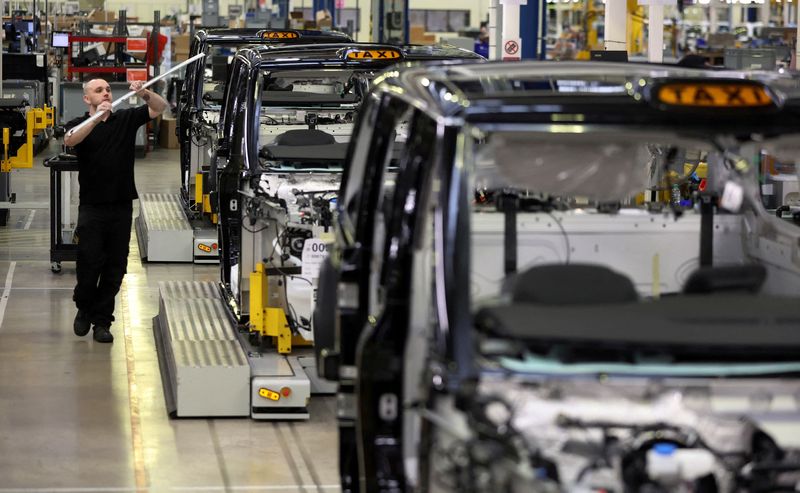By Suban Abdulla
LONDON (Reuters) - Britain's manufacturing output fell for a third month in a row in May and new orders declined at the fastest pace in four, but there were signs that the worst of the inflation surge may have passed, an industry survey showed on Thursday.
The final reading of the S&P Global/CIPS UK manufacturing Purchasing Managers' Index (PMI) was 47.1, down from 47.8 in April and further below the 50 threshold that separates growth from contraction. The provisional PMI figure was 46.9.
May's fall partly reflected a softening in new orders as well as fewer working days due to an extra public holiday to mark the coronation of King Charles.
Rob Dobson, S&P Global's director of market intelligence, said near-term conditions remained challenging as the manufacturing downturn accelerated.
Total new orders dropped to 46.6 from 47.7, the fastest pace of decline since January. Factories noted subdued market confidence and an economic slowdown.
Britain's economy has so far fared better than expected this year, defying many forecasts of a recession, but it remains the slowest of the Group of Seven rich nations to recover from the hit caused by the coronavirus pandemic.
S&P Global said overseas orders declined for the 16th month in a row amid lower demand from the U.S. and mainland Europe.
"The retrenchment in export demand is also being exacerbated by some EU clients switching to more local sourcing to avoid post-Brexit trade complications," Dobson said.
However, there were some signs of diminishing inflation pressures that are likely to be welcomed by the Bank of England, which is expected to raise interest rates for the 13th meeting in a row on June 22.
Manufacturers' average input costs among manufacturers fell in May for the first time since November 2019, and pressures on supply chains eased further, S&P Global said.
Activity in Britain's manufacturing sector surged after the pandemic lockdowns but has since lost steam, partly as factories completed working off their backlogs.

Five sub-sections of the manufacturing PMI survey showed a deterioration in trading conditions.
However, 57% of factories expected output to rise in the coming year, the highest reading since March 2022.